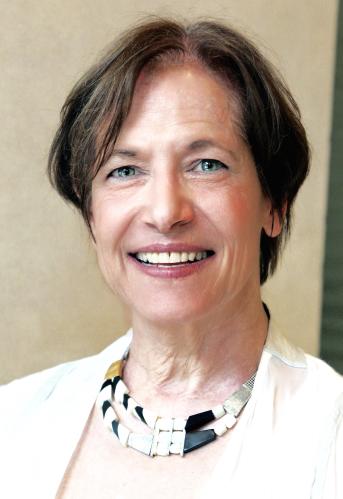Research Areas
-
Education
Sub-Topics
-
Society & Culture
Sub-Topics
Kathy Hirsh-Pasek, a professor of psychology at Temple University, a senior fellow at the Brookings Institution, and a visiting professor at Oxford University, was declared a “scientific entrepreneur” by the American Association of Psychology. Author of 17 books and more than 250 publications, she served as president of the International Congress for Infant Studies, was on the governing board of the Society for Research in Child Development, and is on the board of Zero to Three. Her books “Einstein Never Used Flashcards” won the Book for a Better Life Award in 2003 and “Becoming Brilliant” (2016) reached The New York Times Best Sellers list in education. Her newest book “Making Schools Work” (2022) is the first education book co-written with teachers, administrators, and scientists.
Hirsh-Pasek has won awards from multiple psychological and educational societies for her science and translational work designed to bridge basic science and educational impact. A founding member of the Latin American School for Educational and Cognitive Neuroscience, she spearheaded a global network of scientists devoted to educational science. Co-founder of the global Learning Science Exchange Fellowship, she brings together scientists, journalists, policymakers, and entertainers to put the learning science in the hands of educators. In 2021, she was elected as a member of the National Academy of Education. Her initiative Playful Learning Landscapes reimagines cities and public spaces as places with science-infused designs that enhance academic and social opportunities. Her recent initiative, Active Playful Learning, brings together leading scientists and educators to reimagine early education in the United States. Hirsh-Pasek frequently comments for the press.
For more on Hirsh-Pasek and her work, please visit her personal website.
-
Current Positions
- Stanley and Debra Lefkowitz Faculty Fellow and Professor of Psychology, Temple University
- Visiting Professor, Oxford University
- Board Member, Zero to Three
- Steering Committee of the Latin American School for Education, Cognitive Neural Science
- Member, National Academy of Education
- Founder, Ultimate Block Party
-
Past Positions
- President, International Congress of Infant Studies
- Associate Editor, Child Development
-
Education
- Ph.D., University of Pennsylvania (1981)
- B.S., University of Pittsburgh (1975)
